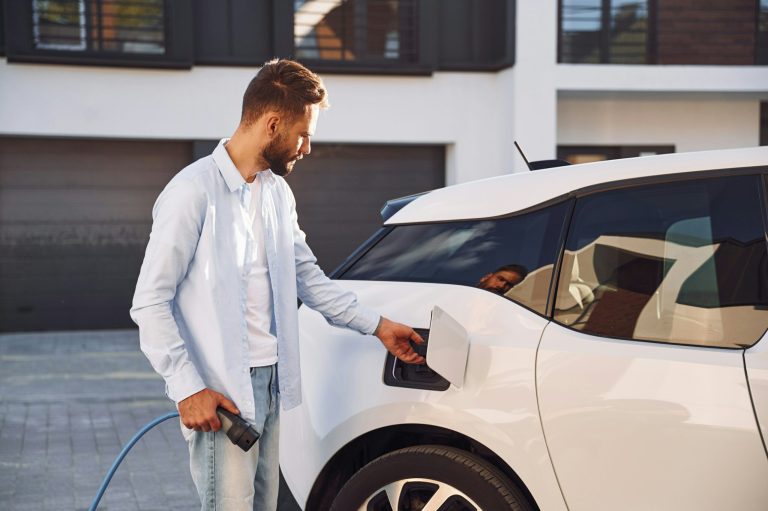As the UK gears up for a transformative year in electric vehicles (EVs), 2025 is set to be a pivotal moment for the industry. With significant changes anticipated both in the global economy and local EV market, this year will bring substantial shifts for EVs, drivers, and infrastructure. Key factors influencing this shift include the return of Donald Trump to the White House, evolving tariffs, a growing used EV market, and an expansion of charging infrastructure across the UK.
EV Market Set for Major Growth in the UK
2025 will mark a critical year for the EV market in the UK, with manufacturers setting a new sales target of 28% for electric vehicles. Recent data from The Society of Motor Manufacturers and Traders (SMMT) shows promising growth, with EVs making up 20.7% of vehicle deliveries by October 2024. While this is below the government’s 2030 goal, it marks a substantial increase from the previous year’s 15.6%. A similar increase in 2025 would push EV market share closer to the 28% target, signifying a major shift towards sustainable transportation.
The predicted demand surge for EVs aligns with expectations for a used EV market boom. As more people finish leases and consider upgrading their vehicles, used EVs are expected to become an even more significant part of the market. The Electric Car Scheme’s salary sacrifice scheme, which helps reduce the cost of used EVs, has been particularly successful, with used vehicles now making up over 50% of their sales. The decline in prices for used EVs, coupled with financial concerns for many consumers, makes these vehicles more accessible than ever before.
A Boost for Charging Infrastructure
In line with the rise of electric vehicles, the UK’s charging infrastructure is set to grow rapidly. By mid-2025, the UK is expected to have over 100,000 public EV chargers, more than ten times the number of petrol stations in the country. This expansion, driven by both government and private sector investment, will include a higher proportion of rapid and ultra-rapid chargers, helping reduce range anxiety—one of the main barriers to EV adoption.
This growth in charging stations is complemented by innovations in home charging solutions. Off-peak smart charging, for instance, will enable EV owners to charge their vehicles at lower rates, saving them money while helping balance grid demand. The Electric Car Scheme’s new salary sacrifice charging offering could further reduce costs, providing drivers with affordable and flexible options.
Trump’s Return and Its Impact on EV Affordability
As Donald Trump returns to the White House in 2025, his policies could play a significant role in reshaping the global EV market. One area of focus will be tariffs. Trump has previously signalled opposition to subsidies for electric vehicles in the US, potentially leading to the introduction of higher tariffs on foreign-made EVs. This could make American-made EVs more expensive, encouraging manufacturers to seek alternative markets for their products. This, in turn, could lead to an influx of cheaper Chinese-made EVs into the UK market, making EVs more affordable and accessible to a wider audience.
Thom Groot’s Outlook for the Future of EVs
Thom Groot, CEO of The Electric Car Scheme, shared his insights on the future of EVs in the UK. “2025 is poised to be a game-changing year for the EV market,” said Groot. “With the arrival of cheaper Chinese-made EVs, advances in battery technology, and increasing government support, we could see EV prices drop below £200 a month. This will make electric vehicles more accessible to consumers and accelerate the shift towards sustainable transport.”
Groot continued, “The road to 2030 is long, but there’s significant consumer demand for affordable EVs. At The Electric Car Scheme, we’re committed to simplifying the process and helping more people make the transition to an electric vehicle.”
Conclusion
2025 promises to be a landmark year for the UK’s electric vehicle market. As the country faces a mix of domestic and international factors, including a growing used EV market, expanded charging infrastructure, and the potential influence of Trump’s return to office, the future of EVs looks brighter than ever. With increasing affordability, innovative technologies, and a shift towards sustainability, 2025 could see a dramatic increase in EV adoption across the UK.


